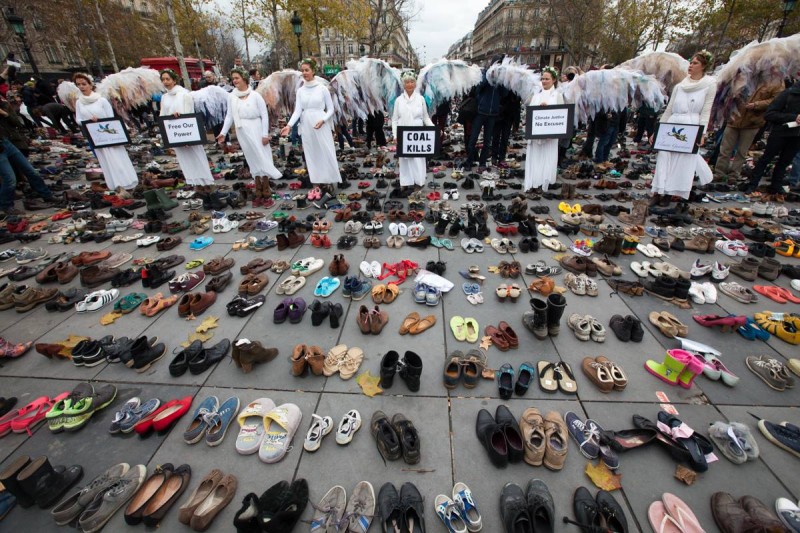Photo: Sean Hawkey
Press Release No: 15/52
14 December 2015
Brussels
The historic United Nations Climate Change Conference (COP21) has concluded in Paris. For the first time, after a generation of negotiations, a global community of close to 200 nations has been able to speak with a common voice on climate change. Talks ran overtime and produced the Paris Agreement—a legally binding and ambitious global deal.
CEC welcomes the agreement as a signal of hope for combatting climate change and advancing ecological justice. It outlines comprehensive measures to hold global temperature increases to ‘well below’ 2°C, and pursue efforts to limit it to 1.5°C. The agreement also recognises the particular needs of vulnerable communities, and commits richer countries to financial transfers to regions most affected by climate change.
The agreement is historic in its recognition of the need for radical change of the global economy. This includes increasing efforts toward reducing carbon emissions, and the role of industrialised nations in leading these initiatives. “CEC has long advocated for a strong link between economic and environmental justice,” said CEC General Secretary Guy Liagre, “We welcome this agreement as a signal of hope, and as significant recognition of the necessity of global and common action.”
Peter Pavlovic, secretary of the European Christian Environmental Network (ECEN), underscored that although the agreement is important, it must be viewed as an invitation to further action. “The significant work of implementation lies ahead. We must believe that the good intentions of the text will be honoured.”
Religious contributions to the Paris proceedings were notable. Churches and ecumenical organisations from Europe and around the world had a strong presence at COP21, including a lead up pilgrimage for climate justice. Their efforts in shedding light on the ethical dimensions, care for the vulnerable, and accepting human responsibility for climate change were acknowledged during negotiations. At the centre of church campaigns and actions was a call for climate justice—a key concern that was largely edited out of the final text.
“Effective response to climate change will increasingly call into question many habits in industrialised societies, we will be increasingly confronted with the challenge of fairness and limitations in our lifestyle” continued Pavlovic, “However, recognition of this responsibility, and the need for climate justice will continue to guide the work of the churches in the safeguarding of Creation.”
For more information or an interview, please contact:
Erin Green
Communication Coordinator
Conference of European Churches
Rue Joseph II, 174 B-1000 Brussels
Tel. +32 2 234 68 42
Fax +32 2 231 14 13
E-mail: eeg@cec-kek.be
Website: www.ceceurope.org
Facebook: www.facebook.com/ceceurope
Twitter: @ceceurope
The Conference of European Churches (CEC) is a fellowship of some 114 Orthodox, Protestant, Anglican and Old Catholic Churches from all countries of Europe, plus 40 national council of churches and organisations in partnership. CEC was founded in 1959. It has offices in Brussels and Strasbourg.
